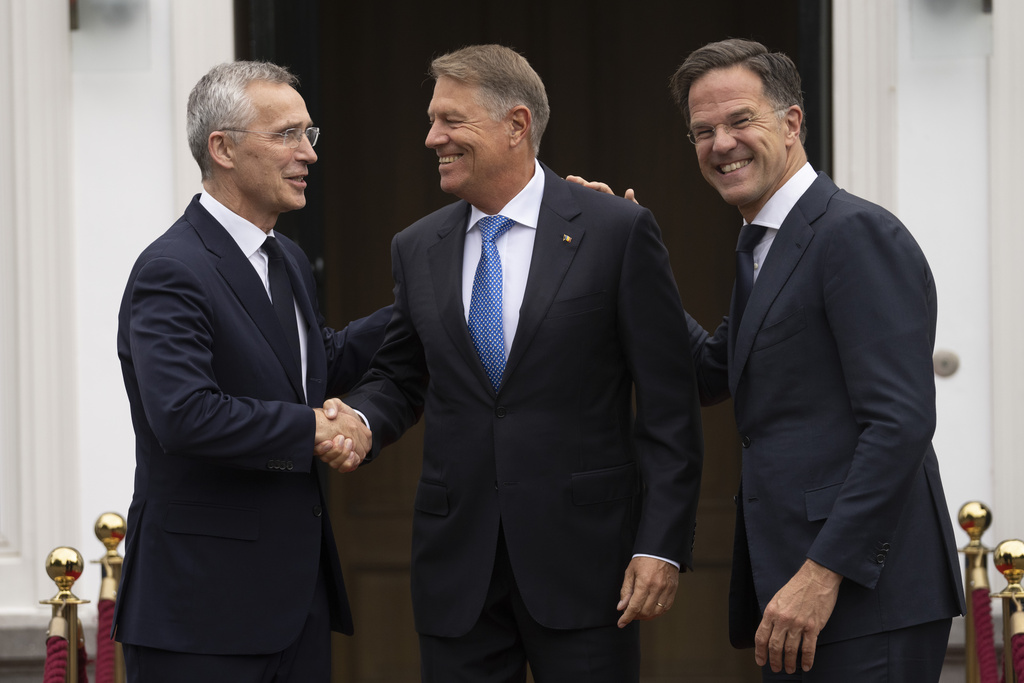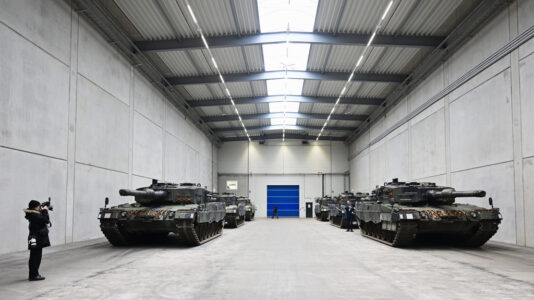Neither candidate earmarked for the position of NATO secretary-general is ideal for Hungary, a Hungarian defense policy professor has told the Magyar Nemzet newspaper.
Although one of the founding missions of NATO is to defend democracy, there is little democratic about the nomination of its secretary-general. The post is not even decided in the North Atlantic Council, the organization’s highest decision-making forum, but is the subject of negotiations in the background until member states can find a consensus candidate.
With the incumbent, Jens Stoltenberg, stepping down after 10 years at the helm, a successor should be agreed on by September. It is expected that their nomination will be discussed at the alliance’s foreign ministers meeting in April and at the summer summit in Washington. So far, two candidates have put their names forward: Dutch Prime Minister Mark Rutte and Romanian President Klaus Johannis.
The post is less military and more diplomatic: The secretary-general is responsible for chairing the council and other key bodies mentioned above and, more importantly, for representing the alliance in international relations and the media. Their mandate is in principle for four years, but this can be extended several times. The post is always held by an influential European politician, but so far it has only been shared by eight nations.
“In the past, the secretary-general was chosen from among the ministers of foreign affairs and defense, but in the past 15 years the secretary-general has been chosen from among former prime ministers, which shows the growing importance of the organization,” retired general Zoltán Szenes, former chief of staff of the Hungarian Armed Forces, currently teaching defense policy at the National University for Public Service in Budapest, told Magyar Nemzet.
“It is not unprecedented for a decision to be preceded by a heated debate, as it is always preceded by political discussions and requires full consensus,” he explained.
“For example, there was a huge debate when Anders Fogh Rasmussen was elected secretary-general in 2009. On the one hand, he was the first person to join NATO from the post of prime minister, and on the other hand, Turkey opposed his appointment for a long time, since the Muhammad cartoons first appeared in Denmark in 2005 during his time as prime minister. Eventually, the Turks agreed in exchange for a post as deputy secretary-general, but Rasmussen was not allowed to travel to the Arab region for a long time, and the deputy secretary-general was instead in charge of the leadership,” Szenes said, recalling the most controversial incident.
The question is, what criteria do member states use to make their choice? Zoltán Szenes said that, in principle, Mark Rutte and Klaus Ioannis are both excellent candidates and both countries are doing well in NATO, with a strongly Atlanticist security policy. Looking at the balance of power, he pointed out that the Dutch prime minister has broad support from the Americans, the French, and the Nordic countries. Mark Rutte has the advantage that the Netherlands is always led by coalition governments, so his alliance-building “routine” is well suited to the 32-nation alliance.
At present, Romanian politician Mircea Goana holds the post of deputy secretary-general, which reduces the chances of the Romanian president, he reflected.
He added that, at the same time, the Baltic and Polish people have long been fighting for the next secretary-general to be from Central and Eastern Europe.
“The Russian-Ukrainian war is also unlikely to strengthen the Eastern European candidate because these countries are historically more affected than Western Europe. It is therefore more difficult to expect a more neutral, balanced policy from a secretary-general from the region,” Szenes said.
Hungarian Minister of Foreign Affairs and Trade Péter Szijjártó has already made it clear that Hungary does not support the Dutch prime minister, who earlier spoke of “bringing Hungary to its knees.”
Zoltán Szenes also pointed out that, from a Hungarian point of view, there could be emotional arguments against both candidates: Mark Rutte was involved in the European People’s Party debates, which ultimately ended with the ruling Fidesz party leaving the group, while Klaus Ioannis has also previously made anti-Hungarian statements.





